#god is deliverance
Explore tagged Tumblr posts
Text
Supernatural Angels



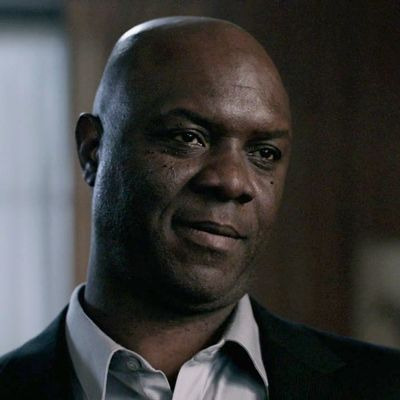



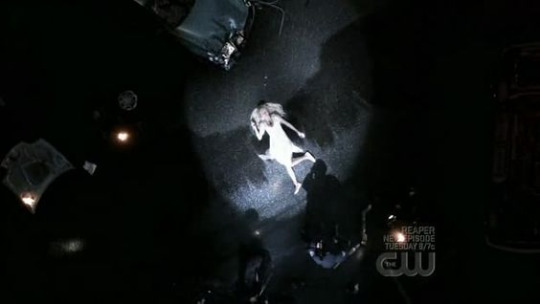



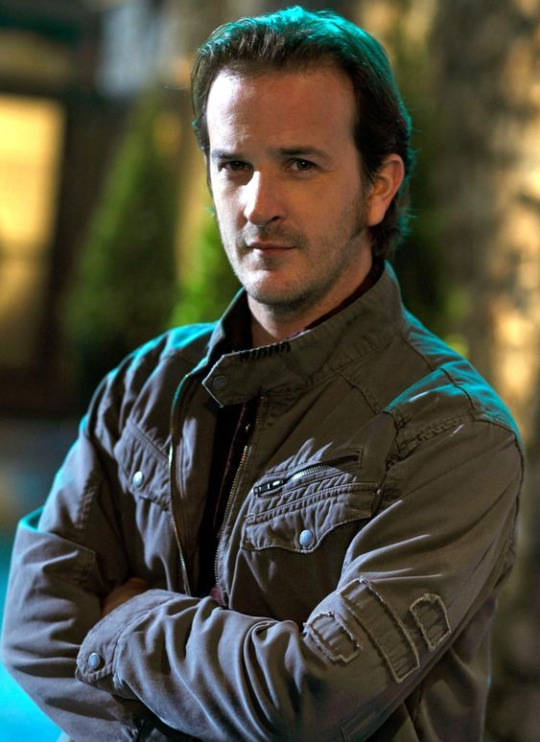



#Supernatural#Angels#Castiel#Anna#Shield of God#God Has Favored Me#Uriel#Flame of God#Zachariah#God Remembers#Michael#Who is Like God?#Lucifer#Morning Star#Gabriel#God is my Strength#Raphael#God has Healed#Joshua#God is deliverance
3 notes
·
View notes
Photo
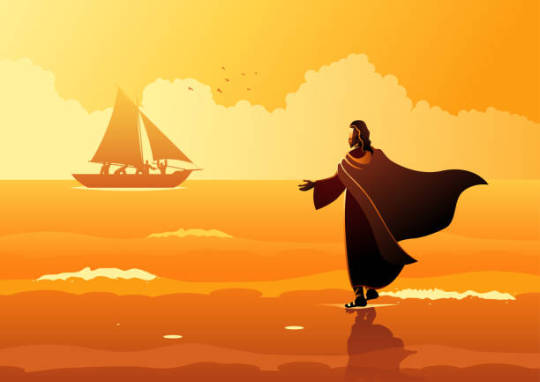
What is the history behind the name Joshua?
Joshua comes from the Hebrew name "Yehoshua," meaning "God is deliverance."

#joshua#yehoshua#god is deliverance#kemetic dreams#origins of names#origin of name#origin of names#hebrew#ibiri#hebrew name#ibiri name#history#christian#christian name
18 notes
·
View notes
Text


Him
2K notes
·
View notes
Text
tin hats on. let’s talk about the great war.
first, a general point about the relevant world of remnant spots: qrow narrates all of them. i think this is important to keep in mind when assessing the information provided, because he editorializes constantly, and i do not believe that we are meant to take qrow’s obvious biases at face value. rather, this is a narrative choice to introduce us to this history through a very distorted lens; qrow is ozpin’s man, loyal to the bone before to the revelation of ozpin’s lies, and it is also very likely that he had no formal education prior to his enrollment at beacon academy.
#1: the pre-war kingdoms.
vale sits on the northwestern coast of sanus, sandwiched between “steep mountains” and “waters too shallow for any real monsters to pop out of.” throughout the kingdom’s history, every attempt to expand the kingdom’s borders past the mountain range has ended in “colossal failures”—the most recent of which is mountain glenn, in the post-war period.
however, vale was also engaged in a different expansionist effort in the century preceding the great war: the kingdom was building settlements on “the small islands and peninsulas” of the northeastern coast.
to the north of vale lay the kingdom of mantle. qrow does not give a lot of detail regarding the settlement of solitas, just that “at some point, a group of settlers were crazy enough to venture out into the northernmost continent,” but i submit that the founders of mantle came from northern sanus. why?
mantle’s location at the southwestern tip of solitas is geographically closest to the island of vytal, just off the north coast of sanus; had the settlers come from northern anima, they would have more likely landed on the eastern side of the continent.
qrow says this: “the harsh weather conditions proved to be just as useful as the mountain ranges when it came to keeping the creatures of grimm at bay,” and while anima does have mountain ranges, they’re not remarked upon in WOR: mistral. it is vale that depends upon “steep mountains” to bulwark its eastern flank against the grimm, and vale that has made repeated, unsuccessful attempts throughout its history to expand its borders beyond those mountains.
it is unclear how long mantle existed as an independent state prior to the great war, but we know that it’s not very old; qrow also states that the century preceding the great was “filled with so much tension” that it might as well be “lumped together” with the great war. meaning almost certainly that there were smaller-scale conflicts throughout the whole period. sometime during that century, vale began to build settlements in northeastern sanus. mantle was settled “at some point” by “a crazy group of settlers”—and “i guess when you’re that desperate,” qrow opines, “a frozen hunk of rock doesn’t seem like such a bad place to call home.” mantle is geographically closest to northeastern sanus. there are—there have always been—people living outside the kingdoms, who do not want to be part of the kingdoms.
you do the math. or i will: mantle was founded by people displaced from northeastern sanus by valean expansion, probably in the neighborhood of a hundred years prior to the great war.
meanwhile, mistral was conquering anima. notably—because qrow doesn’t like mistral, particularly—there is less ambiguity on this point than on vale’s settlement of northeast sanus: this expansion was an imperial project. a conquest. mistral was (and based on the language used in the present, still is) an empire, meaning its “territories” are all conquered people or polities from whom the imperial core extracts resources, which—both historically and in the text of this story—includes slaves.
so, argus. during the century preceding the great war, mistral’s attention turned to northern anima. according to jaune and ren in 6.7, mistral’s expansion into the region was stymied by the cold until forming an alliance with mantle; qrow describes mantle as an “unlikely friend” to the empire. the goliath in the room that none of these characters acknowledge (and may not know, given their upbringings—bandit, orphaned young, & very sheltered) is that the region was probably not uninhabited at the time.
empire. conquest. controlled territories. you cannot have these things without also having conquered people. what stymied mistral’s expansion into the region was likely not the cold per se but the logistical burden the cold imposed upon military action here; invading a cold region with an army in the wintertime is famously not a good idea. and, if mantle was founded by people displaced by valean imperialism… well, that explains both qrow’s view of it as an “unlikely friend” and why mantle would make such an overture of alliance to mistral in the first place; vale and mistral were the great world powers, and for mantle—a small, vulnerable, dust-rich but otherwise resource-poor state with every reason to fear its closer southern neighbor—cozying up to mistral would have been just rational politics; hug one great power to insure against invasion by the other.
and then there’s vacuo.
WOR: vacuo is easily the least factually trustworthy episode in the series to the point that i think it is probably all but worthless in terms of the historical narrative given; it’s worldbuilding the modern day cultural narratives about the conquest of vacuo, not the actual history.
(the CFVY novels, i believe, support this reading: in the present, many city vacuans believe the narrative qrow offers here that the old kingdom of vacuo was a “paradise,” but “comfort breeds weakness” and its people were complacent, soft, helpless to defend themselves from invaders from more hardened kingdoms… but the first king of vacuo was a man called malik the sunderer, shade’s history teacher states that it’s been centuries since vacuo was conquered and the real history has been so obscured and distorted by myth that it’s impossible to know what it was truly like, and desert vacuans—the nomadic peoples who don’t live in the kingdom—have a starkly different cultural outlook on hardship that is much more in line with the story’s themes and also reality, valuing community, hospitality, and resilience over “strength.”)
but there is one kernel of very interesting information in this episode: “after the great war, a formal government was finally established.” meaning there wasn’t a formal vacuan government before the great war.
vacuo was not a state before the great war.
of vacuo’s entry into the great war, qrow says this:
Up to this point, Vacuo had done its best to stay out of the fight. Mantle and Mistral, having both already established a small presence in Vacuo territory years before promised to leave them alone, provided they didn't interfere. Soon, those talks evolved. It went from "Don't side with them" to "Side with us and you'll be safe". Vacuo did not much care for that, and they came to the conclusion that if Vale were to fall, there'd be no one left to stop Mistral and Mantle from conquering them next. So they did what they considered to be the logical thing. They drove Mantle and Mistral out of Vacuo and told Vale they had their backs.
at this point in history, vacuo did not have a government. at this point in history, vacuo was not a state. the kingdom of vacuo had been conquered centuries ago (by “more developed kingdoms,” qrow says—by whom?), and according to rumpole (<- an actual authoritative source, given she teaches history at shade!), “few documented accounts or records remain from that far back.”
the conquest of vacuo predated the conflicts of the prewar century (and probably predate the existence of mantle). this illustration in WOR: vacuo implicates all three of the other kingdoms—blue for mistral, white for mantle, green for vale:
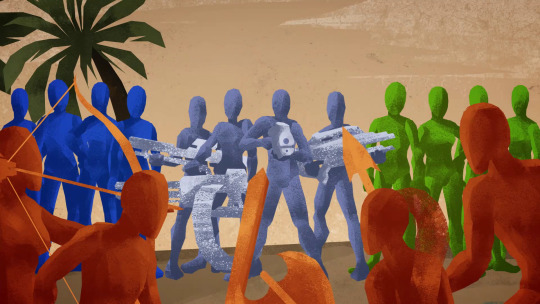
so there is no question that vale participated in the butchering of vacuo; it did. but this illustration is also impressionistic, ahistorical, not a literal representation of how vacuo was conquered.
by the time of the great war, vacuo was a territory occupied by mantle and mistral, but vale does not seem to have had a significant presence there. in the present, vacuans harbor a lot of resentment for mistral and atlas, less for vale. vale is also, by virtue of being located on the same continent, the kingdom best positioned to invade vacuo if it so chose.
(qrow asserts that vacuo was conquered by “more developed” kingdoms, but it was also dust-rich—the CFVY novels confirm this—and there is a clear correlation between technological innovation and access to an abundant source of dust. it’s possible that a scarcity of, say, iron inhibited ancient vacuo’s technological development and put it at a military disadvantage, but generally i think it’s more likely that qrow is regurgitating historical propaganda there.)
the point being: vale conquered the kingdom of vacuo and then either withdrew or lost a war with mistral for control over the territory at some point prior to the great war.
regardless of the finer details, the historicity of qrow’s account regarding vacuo’s entrance into the war seems… pretty suspect given that vacuo did not have a government. what sort of “talks” do you suppose the mantle-mistrali bloc was having with the non-state actors of vacuo? what kind of “presence” did mistral, the empire that conquered all of anima, actually have in the vacuan territory?
hmm. i wonder.
vacuo “drove mistral and mantle out” and threw in their lot with vale; meaning, the vacuan side of this war was really a war of independence. vacuo wasn’t “doing its best to stay out of the fight” so much as it was under mistrali control until the vacuan people rebelled, then sided with mistral’s enemy.
#2: salem?? ?
ozpin—and qrow by extension—believes that salem ignited the war with a false-flag op in northeastern sanus (“to this day, no one knows who shot first” + “salem’s smart. she works in the shadows, using others to get what she wants, so that when it comes time to place the blame, we can only point at each other”). much of the fandom not only takes this at face value but also assumes without… really any basis at all that salem was responsible for the “incident” in mantle that the mantelian government used to justify a raft of draconian censorship laws.
but… authoritarian regimes can and will use any pretext to justify repressive new laws whose real purpose is to punish dissenters and strengthen control over the populace; banning art and all forms of self-expression is not a move that anyone would think with any seriousness would protect people from the grimm. qrow is either being disingenuous in purpose or (more likely) just doesn’t know what the fuck he’s talking about because four years at the monster-hunting college is the sum total of his education: “the people of mantle had come to believe that they would be much safer from the grimm if they could only keep the emotions of the masses in check” is the kind of bullshit nonsense you would expect if the guy doesn’t know how government works, either the modern-day democratic councils or whatever system prewar mantle had; what is the distinction between “the people” and “the masses?”
in. the. unreliable. narrators. show.
mantle’s autocratic government found a pretext to crack down on subversive speech and pumped out a massive body of propaganda to the tune of “we’re just doing what we must for the good of the people :)”—that’s what happened. that’s why mistral imposed the same laws on its territories but not in the imperial core, and why mantle didn’t have a problem with that “selective” enforcement.
maybe salem sent some grimm to attack mantle, maybe she didn’t. maybe there was a public protest that got angry enough to attract grimm. maybe there was a protest that got too rowdy, and who’s going to openly question the government officials claiming that officers on the scene opened fire into the crowd because a grimm jumped out of the sewers? grimm evaporate when they die. kind of a hard thing to fact check.
and in a similar vein… vale’s king rolled out a welcome mat for mistrali colonists who came to colonize valean settlements. it is beyond nonsensical to think that there was no violence involved. colonization is an inescapably and inherently violent process. and remember, the rioting began shortly after mistral imposed draconian censorship laws on its occupied territories, which absolutely would have included parts of eastern vale.
it was inevitable and completely predictable that this situation would explode. might salem have sent someone to fire the first shot? sure? but why would she bother, when the fuse was burning down all on its own?
(and that’s assuming she even had an interest in provoking a massive war at all, which seems rather unlikely given her apparent disinclination to engage in wanton destruction; see also her consistent choices to limit civilian casualties by pulling out of vale quickly / planning a surgical strike on haven academy / not attacking mantle / not sending grimm into the subways of atlas.)
but. but–
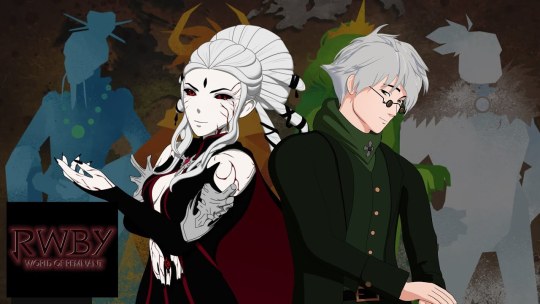
they did put her in the thumbnail. the point of this is presumably to imply that she did, in fact, do something to influence these events.
specifically.
they put her in the thumbnail superimposed over the leader of the vacuan rebellion, who:
led what must have been a pretty desperate fight against steep odds to drive an industrialized global power out of vacuo,
kept that coalition together after they won and formed an alliance with vale, and
was a faunus.
ozpin is superimposed over the king of vale because he was the king of vale. so: is the choice to position salem in this way similarly non-arbitrary?
looks into the camera like i’m on the office.
salem is a faunus. she identifies herself as such (“your grace” is the mode of address for menagerie’s chieftain) and she has been socially understood as a faunus for thousands of years (in a time when faunus were hunted and caged like animals, the stories about the witch who lived in the woods among “beasts and monsters” were, uh, probably not referring to wild animals; “beasts” was a euphemism for the people the ones telling those stories hunted and caged.)
to this day, ozpin associates the faunus with salem. he suspects blake of being her spy; he similarly singles out velvet after the massacre of lower cairn (and we don’t get to see what he actually says, only that velvet is in tears by the end). at haven, leo more or less says “the council overruled me and my hands are tied,” and ozpin immediately decides to freeze him out and insinuates to the kids that he suspects leo might be a traitor; meanwhile james “two votes” ironwood is closing atlas’ borders, cutting off the global supply of dust, recalling his troops from an allied state, and behaving so erratically that mistral is evidently anticipating a fucking invasion, and ozpin instructs qrow to take the lamp to atlas anyway. lionheart is a faunus; ironwood is human. the tea set ozpin gifted to lionheart is a replica of salem’s tea set. math.
so the fact that salem is superimposed over the faunus leader here does not seem coincidental; the narrative is very consistent in linking salem to the faunus because she is herself a faunus.
in WOR: faunus, qrow describes the appalling treatment of faunus by humans throughout history (first ostracized and hunted down, later enslaved and exploited) before to the great war and states that, after the great war, “the world was desperate to find compromises that would ensure they'd never see the likes of it again; the faunus were awarded equal rights as citizens of remnant, and as an apology, they were given an entire continent of their own to do with as they pleased. there were some that saw this as fair and just, but many saw it for what it really was: a slap in the face from a nation of sore losers. and so menagerie was born.”
and from the great war:
But whatever the reasoning, everyone bowed to the King of Vale by the time it was over. The Great War had ended. The world was ready to live under the rule of Vale. But the King refused. The leaders of the four Kingdoms met on the island of Vytal, and it was there that they worked together to form a treaty and establish the future of Remnant. Territories were redistributed, slavery was abolished, governments were restructured, and the Warrior King, the last king Vale would ever have, founded the Huntsman Academies and placed his most trusted followers in command of each Kingdom's school.
a few things to unpack here.
first: ozma as the king of vale would have had quite a lot of power to drive the vytal negotiations in the direction he wanted them to go; the other three leaders were given at least a notional say, but these were people who had just seen ozma unleash the horrifying powers of the sword of destruction upon their armies and bowed to him in abject terror—and that’s before getting into the possibility that ozma may have used the crown of choice to compel agreement.
second: “territories were redistributed” mostly appears to mean that mistral was forced to relinquish control over conquered territories that did not want to be part of mistral; vacuan sovereignty was formally restored (…on paper) (shade academy is the de facto government and has been since the war ended, which is worth raising an eyebrow at), parts of western anima were liberated, and… menagerie was given to the faunus.
(menagerie had to have been a mistrali colony before the great war ended, otherwise the framing of “a slap in the face from a nation of sore losers” is nonsensical.)
third: note the implication that awarding the faunus equal rights and giving them an island was a desperate compromise to insure against the perceived threat of a second war. it’s of a piece with ozma’s attempt to appease mistral and avoid war by “sharing” eastern vale with mistrali colonists.
the vacuan leader—his ally in the war—was a faunus, but it sounds very much as though ozma saw her kind as adversaries, at least in potentia, whom he made it a point to appease in the hope of avoiding a war. which is irrational on its face but does make sense in conjunction with ozpin’s clear inclination to imagine connections between salem and faunus, however baseless that suspicion might be.
and on that note, qrow also says this: “a lot of settlements were lost during those years, and most were never reclaimed. rations on food and dust were put into effect, development of technology accelerated, humans and faunus who fought alongside one another became closer and every day, mankind grew more and more efficient at destroying itself.”
pay attention to that rhetorical structure.
many settlements were wiped out
food and dust were strictly rationed
technological (military) development boomed
humans and faunus grew closer
mankind grew ever more efficient at destroying itself
one of these is not like the others.
qrow’s framing of these events likely comes from ozpin, whether directly (things ozpin told him) or indirectly (ozpin’s influence as headmaster over beacon’s curriculum). so the inclusion of “humans and faunus who fought side by side grew closer” into what is otherwise a list of ways mankind “destroyed itself” is perhaps telling of ozma’s mindset at the time; which in turn supports the implication that ozma perceived the faunus as a potential threat to appease after the war.
now!
the question is, how was salem involved—and why?
well. we know that salem is inclined to revolution; she rallied people to rebellion against the brothers millions of years ago, and in her war against the academies in the present, she aligns herself with groups like the white fang. she refers to the global order ozma established through the vytal accords derisively as “your so-called ‘free’ world.”
and we know that salem herself is a faunus, and thousands of years ago she was present enough in faunus culture that their creation myth is just a refraction of her story—transformation into something new by a choice to leap into magical waters.
we know that the faunus did not have rights in any of the four kingdoms before the great war, and mistral in particular is noted for its reliance on (presumably, mainly faunus) slave labor. reading between the lines of qrow’s slanted narration, vacuo was a mistrali territory back then, and in the CFVY novels it’s mentioned that vacuan faunus were regularly enslaved in mistrali-operated mines within that territory.
and we can guess, based on their leader being a faunus, that the vacuan rebels who drove mistral and mantle out of vacuo were predominantly faunus, plus humans willing to follow and fight for the faunus.
in the present, salem preferred sienna khan over adam and dropped adam like a hot potato after he assassinated sienna; she also clearly has no intention to attack menagerie, where the grimm notably do not seem to be a serious problem. salem also implicitly identifies herself as a faunus (“your grace”). so there are grounds for thinking that she does consider the faunus to be her people.
vacuo’s part in the great war was a war for independence. salem is both pragmatic and ruthless; she understands that nothing forces people to cooperate quite like the threat of a common enemy; she has the means to turn the tide of any war by the simple expedient of directing her grimm against the side she wants to lose. if she was in communication with the vacuan rebels—or just had spies—she could have coordinated grimm raids to sever supply lines or winnow defending forces in advance of attacks planned by the rebels, tipping the odds in their favor.
she knows ozma. if she was paying attention to the war, she would have known it began with his futile effort to appease mistral by giving away parts of vale; she has to know he sees her in the shadow of every faunus. the vacuan rebels—most of them faunus, led by a faunus—saved his bacon by joining the war he very much seems to have been losing (the frontlines were in vacuo by the end of the war; all of eastern vale was destroyed, and the king of vale and his army made their final stand in vacuo; vale itself was… probably under mistrali occupation at the time).
i am sure salem did not want, particularly, to throw ozma a lifeline. but she does care about freedom in the abstract—“your so-called ‘free’ world”—and she may think of the faunus as her people. once the war began, once it became clear that vale was losing… well, either vale would fall and mistral would rule the world, which would be undeniably worse for the faunus, or she could grit her teeth and accept helping ozma as a fair price for a shot at liberating the faunus.
and the only thing she would have to do to influence the war’s outcome is use her grimm to disrupt mantelian/mistrali supply lines and specifically target their forces on the battlefield. such attacks wouldn’t stand out against the backdrop of regular grimm activity—there are a lot of grimm in the world beyond her control—but a sustained, deliberate campaign of grimm attacks focused on one side would absolutely add up over time to a significant advantage for the other. especially given that the logistical burden of waging war on a foreign continent is already so much higher than defending your home.
if salem could also keep wild grimm off the backs of vacuo’s and vale’s armies to some extent, a la the apparent absence of a grimm problem in menagerie, that advantage would be even sharper.
…although she probably did not anticipate that ozma would use the sword of destruction to crush everyone who opposed him, or the crown of choice to do… whatever it is he did with it. you win some, you lose some.
78 notes
·
View notes
Text

The Deliverance of Change Sneak Peek Pt.2
“I wasn’t trying to appear scary,” she said, gently touching the petals of her flowers, “but I suppose I have that effect on people.”
You didn’t want to lie to her, but you also didn’t want to make her feel worse.
“If it makes you feel any better, I don’t think you’re scary.”
“At first you did.”
“At first,” you agreed to which her shoulders sank. “But then I got to know you. I got to learn about you, spend time with you, started to like you.”
And that was the truth. Truly and completely. You wanted to say just how much you liked Donna and how much she was beginning to mean to you. How much you wanted to share her with the world to tell them, ‘look at this amazing woman!’ Yet at the same time you wanted to keep her for yourself. You wanted to savor each moment alone with Donna.
-----
I just made it to 8k words and I'm making them sososososososo gay for each other this chapter.
Read the first chapter here | The Deliverance of Change Spotify
#donna beneviento x reader#donna beneviento/reader#donna beneviento#the deliverance of change#tdoc#my fanfic#tdoc fic#tdoc sneak peek#my god these bitches gay
38 notes
·
View notes
Text

The Burning Bush
1 Now Moses kept the flock of Jethro his father-in-law, the priest of Midian; and he led the flock to the back side of the desert and came to the mountain of God, even to Horeb.
2 And the angel of the Lord appeared unto him in a flame of fire out of the midst of a bush; and he looked and, behold, the bush burned with fire, and the bush was not consumed.
3 And Moses said, “I will now turn aside and see this great sight, why the bush is not burnt.”
4 And when the Lord saw that he turned aside to see, God called unto him out of the midst of the bush and said, “Moses, Moses.” And he said, “Here am I.”
5 And He said, “Draw not nigh hither. Put off thy shoes from off thy feet, for the place whereon thou standest is holy ground.”
6 Moreover He said, “I am the God of thy father, the God of Abraham, the God of Isaac, and the God of Jacob.” And Moses hid his face, for he was afraid to look upon God.
7 And the Lord said, “I have surely seen the affliction of My people who are in Egypt, and have heard their cry by reason of their taskmasters, for I know their sorrows.
8 And I have come down to deliver them out of the hand of the Egyptians, and to bring them up out of that land unto a good land and a large, unto a land flowing with milk and honey, unto the place of the Canaanites and the Hittites, and the Amorites and the Perizzites, and the Hivites and the Jebusites.
9 Now therefore behold, the cry of the children of Israel hath come unto Me, and I have also seen the oppression wherewith the Egyptians oppress them.
10 Come now therefore, and I will send thee unto Pharaoh, that thou mayest bring forth My people, the children of Israel, out of Egypt.”
11 And Moses said unto God, “Who am I, that I should go unto Pharaoh, and that I should bring forth the children of Israel out of Egypt?”
12 And He said, “Certainly I will be with thee; and this shall be a token unto thee that I have sent thee: when thou hast brought forth the people out of Egypt, ye shall serve God upon this mountain.”
13 And Moses said unto God, “Behold, when I come unto the children of Israel and shall say unto them, ‘The God of your fathers hath sent me unto you,’ and they shall say to me, ‘What is His name?’ what shall I say unto them?”
14 And God said unto Moses, “I Am That I Am.” And He said, “Thus shalt thou say unto the children of Israel, ‘I Am hath sent me unto you.’”
15 And God said moreover unto Moses, “Thus shalt thou say unto the children of Israel: ‘The Lord God of your fathers, the God of Abraham, the God of Isaac, and the God of Jacob hath sent me unto you.’ This is My name for ever, and this is My memorial unto all generations.
16 Go, and gather the elders of Israel together, and say unto them, ‘The Lord God of your fathers, the God of Abraham, of Isaac, and of Jacob appeared unto me, saying, “I have surely visited you and seen that which is done to you in Egypt;
17 and I have said I will bring you up out of the affliction of Egypt unto the land of the Canaanites and the Hittites, and the Amorites and the Perizzites, and the Hivites and the Jebusites, unto a land flowing with milk and honey.”’
18 And they shall hearken to thy voice; and thou shalt come, thou and the elders of Israel, unto the king of Egypt, and ye shall say unto him, ‘The Lord God of the Hebrews hath met with us; and now let us go, we beseech thee, three days’ journey into the wilderness, that we may sacrifice to the Lord our God.’
19 And I am sure that the king of Egypt will not let you go, no, not by a mighty hand.
20 And I will stretch out My hand and smite Egypt with all My wonders which I will do in the midst thereof; and after that he will let you go.
21 And I will give this people favor in the sight of the Egyptians. And it shall come to pass that, when ye go, ye shall not go empty,
22 but every woman shall borrow of her neighbor and of her that sojourneth in her house jewels of silver and jewels of gold and raiment; and ye shall put them upon your sons and upon your daughters, and ye shall despoil the Egyptians.” — Exodus 3 | 21st Century King James Version (KJV21) The Holy Bible; 21st Century King James Version Copyright © 1994 by Deuel Enterprises, Inc. Cross References: Genesis 11:5; Genesis 14:13; Genesis 15:13-14; Genesis 15:19; Genesis 16:11; Genesis 21:17; Genesis 24:12; Genesis 24:53; Genesis 28:13; Genesis 28:16; Genesis 31:3; Genesis 39:21; Genesis 48:15; Exodus 2:23; Exodus 4:1; Exodus 4:5; Exodus 4:12; Exodus 5:2; Exodus 6:12; Exodus 7:4; Exodus 7:16; Matthew 22:32; Mark 12:26; Luke 20:37; John 8:24; John 8:58; Acts 3:13; Acts 7:6-7; Acts 7:30-31; Acts 7:33; Acts 7:36; Hebrews 11:16
What Was the Burning Bush?
Key Passages in Exodus 3
1. Moses keeps Jethro's flock. 2. God appears to him in a burning bush. 9. He sends him to deliver Israel. 13. The name of God. 15. His message to Israel, and Pharaoh, whose opposition is foretold. 20. He is assured of Israel's deliverance.
#Moses#Jethro's flock#Mount Horeb#Burning Bush#God's messenger#Israel#Egypt#deliverance#name of God#Exodus 3#Book of Exodus#Old Testament#KJV21#21st Century King James Version Bible#Deuel Enterprises Inc.
22 notes
·
View notes
Photo

Verse of the Day - Psalms 18:2
22 notes
·
View notes
Text
There's something in the monastery.
#alexander thornton#monk life#monastic lifestyle#I don't know what it is#God grant me strength#In the name of the Father I pray for deliverance#My stress level can only take so much
18 notes
·
View notes
Text
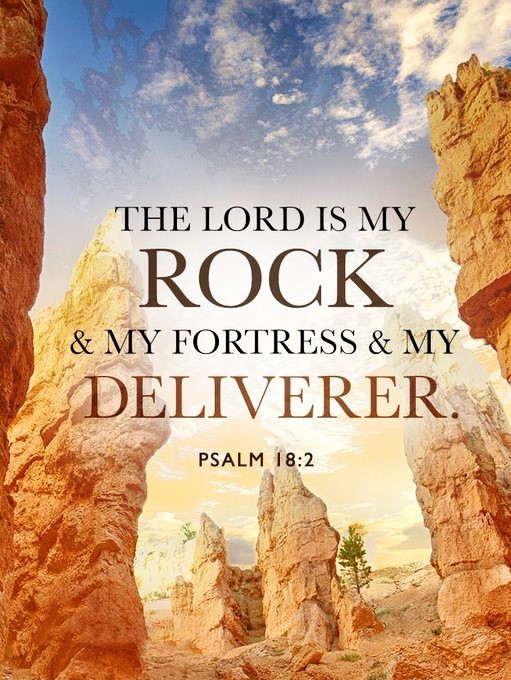
Psalm 18:2 (NKJV) - The LORD is my rock and my fortress and my deliverer; My God, my strength, in whom I will trust; My shield and the horn of my salvation, my stronghold.
19 notes
·
View notes
Text
Jesus Christ be praised. Sisters, brother in Fidei.
I haven't written any posts for a very long time.
In the non-canonical books of the Bible it is said that you can't open your soul, and it is true.
Now here is only sorrow...
Have you ever noticed why on birthdays or other happy holidays people bring much fewer flowers than they do to the cemetery?
Because the feeling of guilt is always stronger than the feeling of gratitude. Of course, true Christians believe that we will all meet in heaven, but this does not deny that our pain over the loss of loved ones quickly passes.
If people say that "time heals" - don't believe them, time never heals. Surely the Lord heals our souls, but He understands how great our sorrow.
Some people ask: “How can you be dear to a person who has passed from earthly life to heavenly life if you don’t cry, don’t say goodbye to him on the last day at the funeral?”
People will say that this is not a grief for you, you don’t care.
"Don’t believe the evil cynics, eternal love has no death" - poems (not mine).
So, if you are accused of why you are so cruel, indifferent to the last farewell to the House of the Heavenly Father, then always remember:
"The man whose heart can be silent is not the same as the man whose heart is full of silence."
We were two blind people: you - because you don't see how much I need you, and I was blind because I don't see anyone except you.
The one who gave his heart to a loved one during his life, then the loved one will never be alone, (although many know that they are telling a lie).
Don't we know that "the most important thing in a conversation is to hear what wasn't said"?
No matter how verbose the prayer, it cannot compare with the one that comes from the heart; the prayer that is directed to God with a pure heart is important.
"Sometimes you think you want to disappear, but really you want to be found."
I speak the languages of love, I don't know other languages. In order to speak the language of love, it is not necessary to say your feelings out loud, it is enough to have pure, endless, selfless love in your heart.
Sometimes silence is enough to say something, but not everyone will understand why you are silent, but in fact you trust God more than people.
I recently came across a phrase on the internet: "God will never leave you empty, He will replace everything you have lost because He wants you to accept something greater."
Some people don't hear what we say, and others hear what you think.
Do not leave those who are silent, because due to mental pain such people do not even have the strength to cry, their cry is like despair and hopelessness when we lose loved ones.
Value each other, especially those with whom the Lord has brought you together in a special way, and not in the way that we meet "temporary people" on our way, with whom we are not connected by strong and genuine feelings.
It's too late for us to understand something, but we must always remember: "Don't offend someone who sees the whole world in you, otherwise one day you will be left with someone who doesn't even see you as a person."



7 notes
·
View notes
Text
The road away

Today’s Gospel is the one about the disciples on the road to Emmaus. It’s a real town, a suburb of Jerusalem that goes by Al Qubeiba these days. But the name really doesn’t matter.
What matters is the name of the road. Because whatever you call the town, the road to it really isn’t the road to anything. In truth, it’s the road away.
For the disciples who are headed home, with the tragedy and horror of Good Friday fresh in their minds, with their hearts broken? For them, it’s the road away from the Jesus they knew and followed.
It’s the road away from deliverance. The road away from healing. The road away from hope.
You and I know exactly how it feels. Because we’ve gotten our hearts broken too, and found ourselves walking down the road away.
Maybe it was the road away after a death. Maybe it was the road away from a relationship that didn’t work out. Maybe it was the road away from sobriety. Maybe it was the road away from family that rejected us. Maybe it was the road away from faith.
Whatever it was, whether someone did it to us, we did it to ourselves, or it just happened, the reason we’re on the road away really doesn’t matter. Because it all hurts just as much.
But no matter what heartbreak sets us on the road away, just like the disciples in today’s Gospel, there’s Someone waiting for us on the road away.
Right in the middle of your heartbreak, the God who made you, the One who has always loved you, is waiting for you. Just for the chance to be with you.
Just for the chance to walk with you, at your pace.
To listen to you, as it all comes tumbling out.
To talk with you, about what’s breaking your heart.
To love you, unconditionally.
To stay with you, always.
To heal you, for however long it takes.
Until the road away becomes the road to Home.
Today’s Readings
#Heartbreak#The road away#Road to Emmaus#Heartbroken#Healing#Hope#Deliverance#God's Love#God#Jesus#Catholic#Christian#Church#Catholicism#Moments Before Mass
25 notes
·
View notes
Text

Songs of Deliverance (2)

#god#jesus#christ#holy spirit#bible#scripture#christianity#faith#prayer#praise#worship#deliverance#praise god#worship god#devotional#daily devotional
12 notes
·
View notes
Text
Im grasping at straws here (as I always am) but. Baldur’s theme right? I was listening to it wondering why it doesn’t replicate Freya’s theme (like how Atreus does w Kratos), and while that’s probably because he wants absolutely nothing to do with her and thinks of her more as an infection than a mother, I NOTICED SOMETHING AND IM WRONG AND INSANE I KNOW I KNOW
But like, the intro to baldurs theme; someone tell me why it sounds like atreus’s intro strings?
AND I THINK ITS SIGNIFICANT BC WE DONT HEAR THAT STYLE OF MUSIC ANYWHERE ELSE IN THESE GAMES ASIDE FROM BALDUR AND ATREUS. DOES THIS MEAN SOMETHING NO I GUARANTEE IT DOESNT but I’m just once again wishing I was doing anything other than studying economics rn
#gow#gowr#literally ignore this I am so bored rn#god of war ragnarok#god of war#baldur#atreus#DELIVERANCE GOES ABSOLUTELY WILD REGARDLESS THO#not mil
44 notes
·
View notes
Text
i know h*milton is kind of cringe rn but hurricane rewired my brain when i was 15 and to hear it sung live by a guy who can Actually Sing was a genuinely transformative experience tbh
10 notes
·
View notes
Text
"Salvation is much more than a heavenly reward or the deliverance from hell. Rather, salvation is the transformation of the whole person and their ultimate transfiguration into the image of Christ. Salvation is becoming eternally and truly what we were created to be – the very image of God." ~Fr. Stephen Freeman
#Orthodox Christian#Fr. Stephen Freeman#salvation#deliverance from h ell#transformation into the image of Christ#to become the image of God#sanctification#theosis#what we are meant to be
35 notes
·
View notes
Text

Lord, Think of Me
But, as for me, that am poor and needy, The Lord will account it unto me; Thou art my help and my deliverer; O my God, tarry not. — Psalm 40:17 | JPS Tanakh 1917 (JPST) The Holy Scriptures according to the Masoretic text; Jewish Publication Society 1917. Cross References: Psalm 14:6; Psalm 27:9; Psalm 38:22; Psalm 40:5; Psalm 70:5; Psalm 86:1; 1 Peter 5:7
Read full chapter
Psalms 40:17 - Bible Verse Meaning and Commentary
#poor#needy#prayer#Lord#God#remember#help#deliverer#haste#Psalm 40:17#Book of Psalms#Old Testament#JPST#JPS Tanakh 1917#Jewish Publication Society 1917
8 notes
·
View notes